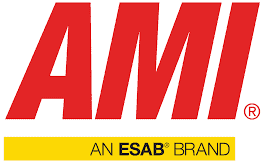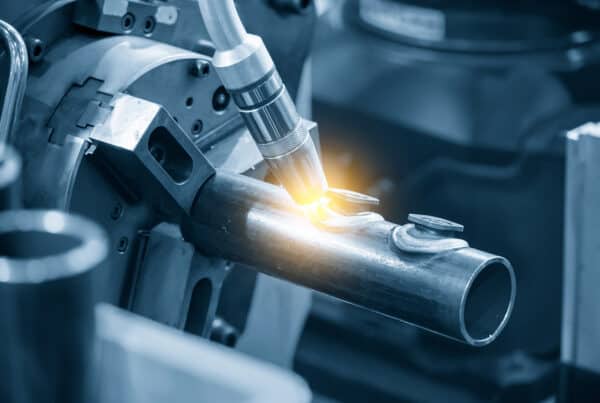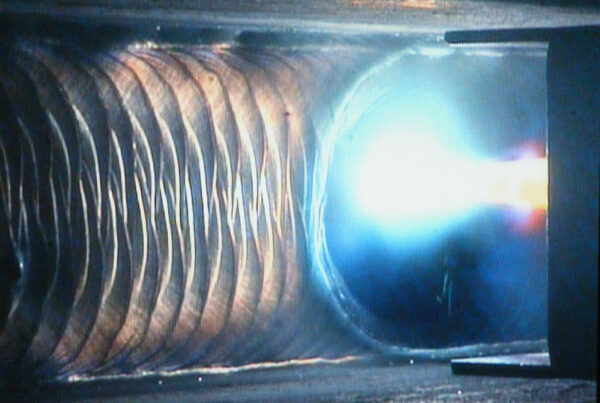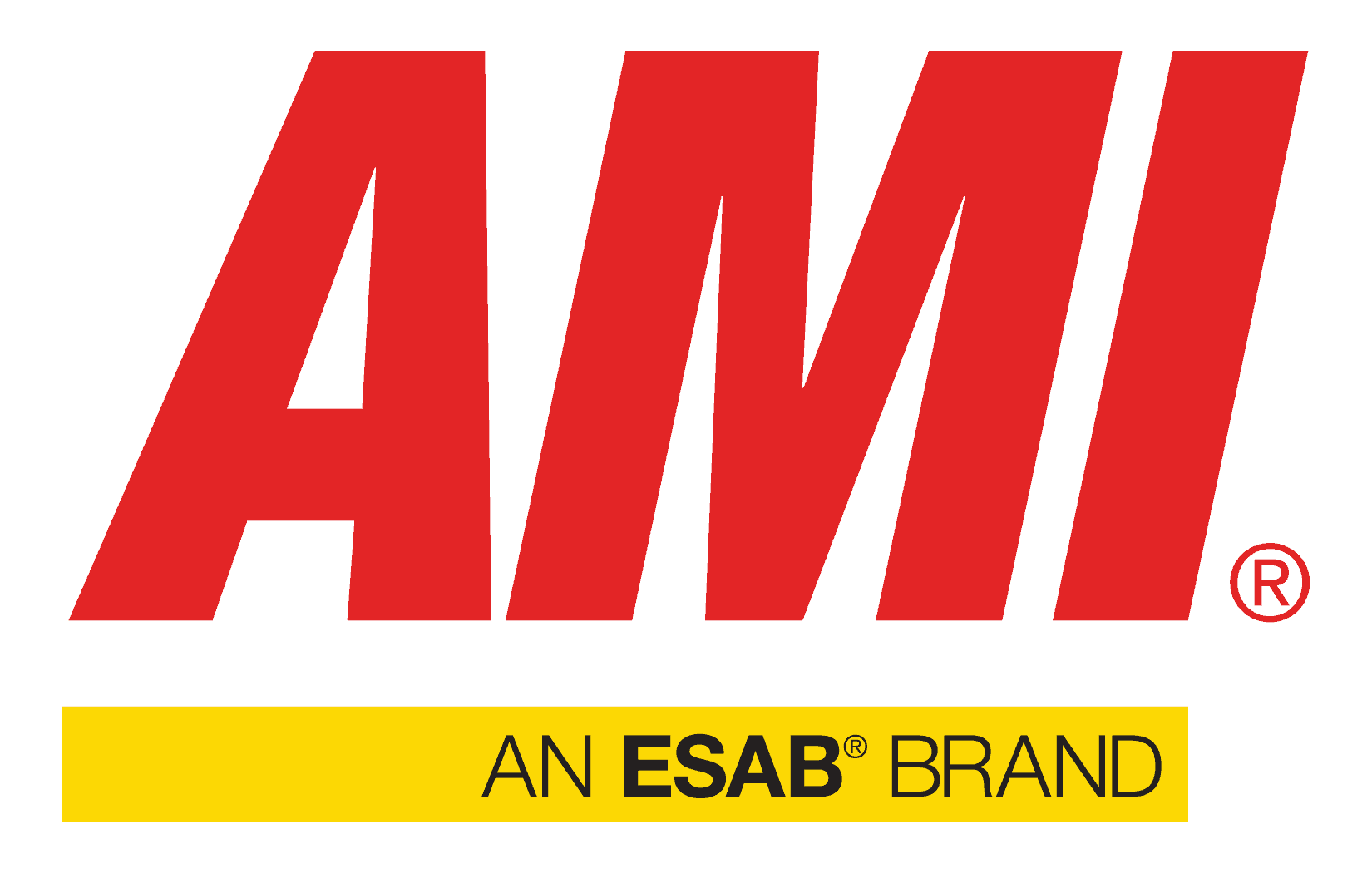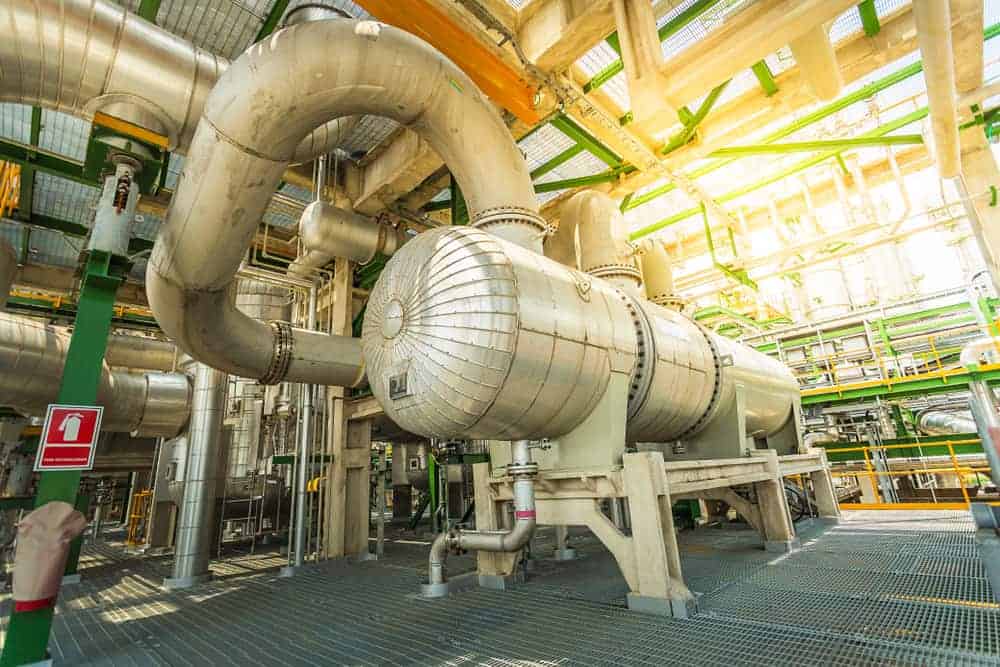
Pressure vessels are used across industries that employ chemical processing —including oil and gas, chemical, and food and beverage processing—and, consequently, they require high-quality fabrication. Under high-temperature and high-pressure, weak points in the assembly (such as joints) can fail. When welding industrial scale pressure vessels, operators must implement precise weld preparation procedures to ensure strong and durable critical welds that meet the demands of enhanced chemical reactions. This article will examine the importance of high-quality welding in large pressure vessel fabrication.
Demanding Requirements of Large Pressure Vessel Fabrication
Pressure vessels serve many unique purposes. For instance, oil refineries require pressure vessels to break long chemical chains to produce gasoline. Alternatively, these vessels may be utilized in food processing facilities for applications where food products are steamed under pressure. Other applications may include use as reactor vessels and heat exchangers. With wide-ranging pressure vessel requirements and standards, manufacturers may encounter complexities when fabricating these vessels.
ASME has set various rules for the construction and fabrication of pressure vessels to ensure quality and safety. BPVC Section IX focuses specifically on the welding, fusion, and inspection of pressure vessels. Similarly, ASTM standards cover the material use specification for pressure vessel welding.
High-Quality Welding and Pressure Vessels
The most common concerns in large pressure vessel fabrication are weld defects like porosity, inclusion, and corrosion. When exposed to the high temperature and pressure conditions that large pressure vessels must withstand, these defects can be the source of failure. Proper surface preparation and cleanliness measures can help prevent these issues and ensure high-quality weld results.
- Cleaning the weld area prevents the inclusion of hydrocarbons into the weld pool. Eliminating trapped gas can eliminate porosity and resolve potential cracking issues.
- Weld surface and weld equipment cleaning can also help prevent inclusions like particles or slag from entering the weld pool to avoid potential contamination, a fundamental concern in food or chemical processing plants.
- An inaccurate bevel angle along the edge can create high mechanical stress and cause joint cracking. With proper machining of joints, potential hot cracking can be avoided as the weld solidifies.
- Thorough surface cleaning is also an essential preventative measure to remove particles that may remain on the metal surface and induce rust once the welding is complete.
Surface preparation followed by an ideal welding process such as GTAW (Gas Tungsten Arc Welding) can ensure compliance with industry standards and produce consistent and precise welds. The GTAW process provides the following advantages:
- Controlled weld parameters, including heat input, voltage, arc length, and travel speed for consistent welds with adequate penetration.
- Availability of shielding gas to prevent contamination.
- Easy welding in all different positions to ensure consistency.
- Adaptability to weld different kinds of similar and dissimilar metals.
Precision Welding for Large Pressure Vessel Fabrication
Large pressure vessels, mostly fabricated for high-pressure use, make welding more challenging because of the high-stake risks involved. A high-quality weld in pressure vessel fabrication must withstand high-pressure, high-temperature, and extreme chemical reactions without compromising component performance. In addition, the high-quality weld should be free of contamination that could interfere with the chemical process.
Welding processes like GTAW paired with orbital welding can provide an automated way to ensure uniformity and control in welding. With auto weld heads enabling control and flexibility and a remote monitoring system providing on-the-fly optimization, large pressure vessel fabrication can be accomplished for diverse operating conditions.
Arc Machines, Inc., a leader in orbital welding technology, provides solutions like AMI orbital weld heads and monitoring systems that can help you adhere to industrial standards during large pressure vessel fabrication. Contact AMI to learn more, or contact sales@arcmachines.com to learn more about AMI orbital weld heads and power supplies.
